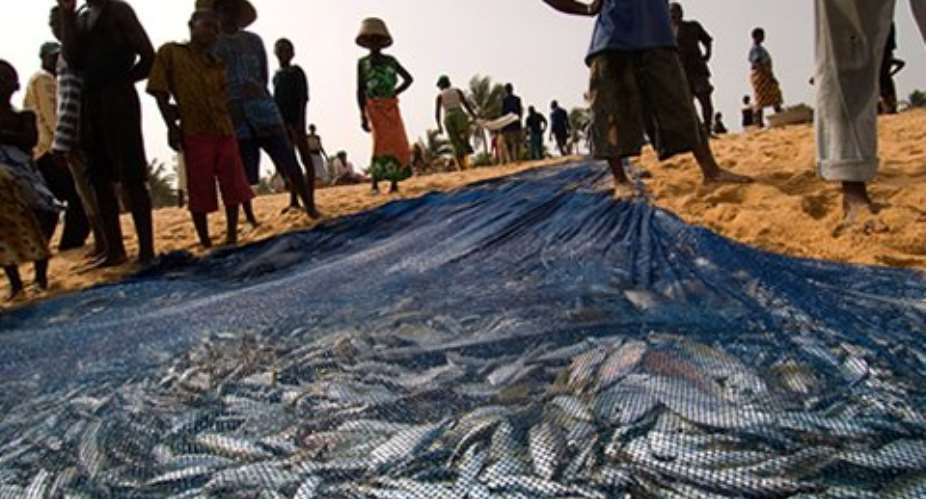A study by the University of Cape Coast’s Department of Fisheries and Aquatic Sciences has revealed Ghana’s fish stock will continue to see a further decline in the coming months.
The disturbing study says not much can be done to save the situation.
According to the research, the decline is due to climate change.
Climate change, which has led to a rise in the temperature of the sea, has started reducing the stock of fish along the cost as they migrate to cooler areas.
An Associate Professor of the department, Professor Aggrey Fynn, contends that the country should brace itself for an even further decline along the coast as they will not be able to survive in the new temperatures of the sea.
Challenges facing fisherfolk
Anlo beach Community located in the Western Region near Shama, has been drastically affected by the rise in sea level, which has evaded their land and washed away countless homes.
One of the fishermen in the area explained how the rise in sea level has impacted fishing activities in the community.
”….The sea has taken over our land and we are now in a helpless state . Fortunately, the government has given us a piece of land which is uphill so we know we will be safe there. However we will continue to fish here whiles we dwell in our new settlement. The rise in sea level has brought us a lot of problems and has also reduced the number of fishes we catch drastically, sometimes I catch nothing at all” he lamented.
Madam Aku Amegatse, a seventy-year-old woman who has been processing fish in the community for the past 19 years, also lamented about how the rise in sea level has impacted her life and business.
“Previously, there were long intervals between the sea evading our homes, but it has now become a daily thing, it has affected my business as the shed in which I used to smoke my fish has been washed away, also the fishermen do not catch as many fishes as before.”
Solutions to deal with challenges
Ghana, which consumes over 950,000 metric tons of fish annually, currently imports over 60 percent of its fish, and in 2016, imported 135 million dollars worth of fish because of the reduction in the country’s fish stock.
Professor Fyn, however, believes Ghana should adopt the taste for the few varieties of fish that will remain along the coast in order not to increase the country’s already high fish import.
He added that government should take another look at the period for the country’s closed season of fishing to increase fish yield.





 Chief arrested for killing soldier at Kasoa over land
Chief arrested for killing soldier at Kasoa over land
 GAF probes soldier’s murder at Kasoa Millenium City
GAF probes soldier’s murder at Kasoa Millenium City
 Ghana steps up effort to pass new Labour law
Ghana steps up effort to pass new Labour law
 AG advises EOCO against money laundering probe into Cecilia Abena Dapaah’s affai...
AG advises EOCO against money laundering probe into Cecilia Abena Dapaah’s affai...
 May Day: I'll prioritise welfare of workers, abolish compulsory retirement age a...
May Day: I'll prioritise welfare of workers, abolish compulsory retirement age a...
 V/R: Adaklu-Tevikpo murder suspect arrested from hideout
V/R: Adaklu-Tevikpo murder suspect arrested from hideout
 Kasoa: Soldier killed by alleged land guards over land dispute — GAF
Kasoa: Soldier killed by alleged land guards over land dispute — GAF
 Fatal shooting of soldier happened at Gomoa East not Kasoa; stop tarnishing our ...
Fatal shooting of soldier happened at Gomoa East not Kasoa; stop tarnishing our ...
 ‘We condemn unprovoked attack in no uncertain terms’ — GAF on fatal shooting of ...
‘We condemn unprovoked attack in no uncertain terms’ — GAF on fatal shooting of ...
 Ghanaians urged to ensure violence free elections on December 7
Ghanaians urged to ensure violence free elections on December 7
